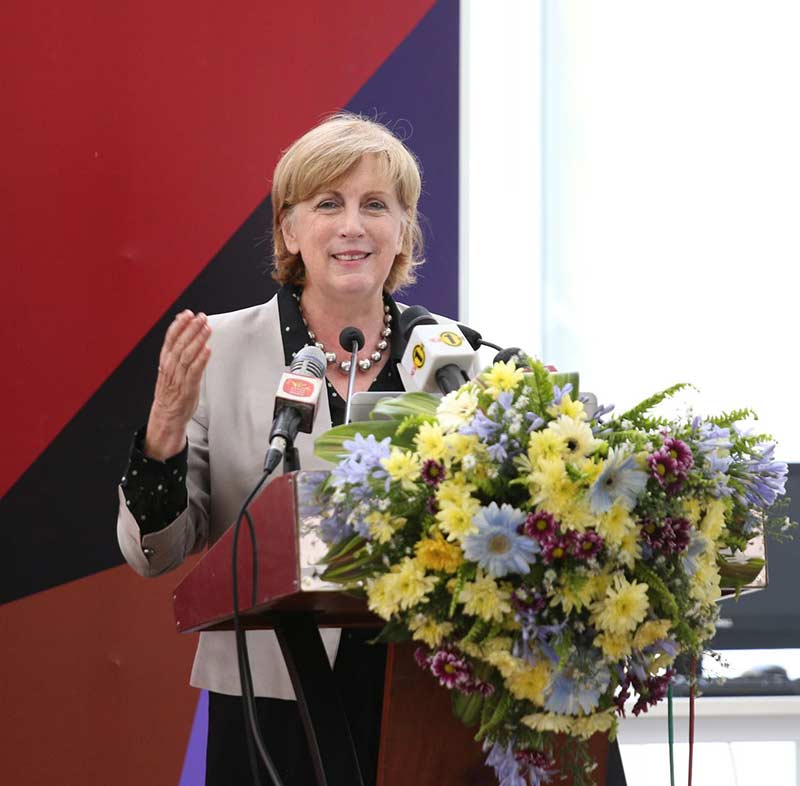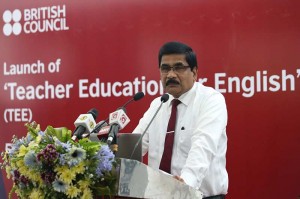
The British Council launches a project to enhance English language teachers’ skills in Sri Lanka
On 5 March the British Council in Sri Lanka announced the launch of a new project to improve the quality of English language education in Sri Lanka.
The project’s goal is to enhance students’ access to good education and employment opportunities by improving the quality of the teaching of English, the language most commonly used in higher education and the private sector.
The Teacher Education for English Project (TEE) will complement the British Council’s Improving Teacher Education in Sri Lanka Project, which focuses on the professional development and skills of teacher educators. Both projects come under British Council’s overarching TRANSFORM education programme. TEE will target a large number of English language teachers and trainee teachers in the country over the project’s 14-month duration, ending April 2019. The target audience in the first stage will be 1000 trainee teachers enrolled in the four National Colleges of Education in Kandy, Kalutara and Jaffna.
A team of six British Council trainers arrived in the country in January this year. After a briefing in Colombo, they were deployed to the four colleges and the project commenced in the second week of February. These trainers are working closely with college faculty to ensure that they also cover the regular curriculum in these colleges.
They will deliver 120 hours of combined English language upgrade and teaching methodology to the English language teacher trainees in their colleges. This aims to raise the teachers’ level of English from A2 to B1 and to develop their practical teaching skills by giving them a solid basis in teaching language for communication.
Ricky Mendis is a renowned corporate leader who shares the British Council’s vision for a thriving, globally connected Sri Lanka. He is generously funding the entire TEE project. “As the private sector’s focus of business is international, a good working knowledge of English is a key factor for employment,” he says. “I felt a need to help at least a new generation of potential employees to get a sound grasp of the English language. There is no better institution to carry out such a programme than the British Council. I decided to fund this in its entirety in the hope that we will see a new generation of competent English users who in turn will pass on their skills to generations to come.”
Gill Caldicott, Country Director British Council Sri Lanka said “English is, without doubt, the key skill for the 21st century. Every country in the world that wants to participate in the global economy needs a trained and skilled workforce that can operate in English as well as in the national languages. The Government of Sri Lanka has recognised this and, as a result, we at the British Council are helping to support reforms which will lead to systemic and sustained improvements. Improved teaching and learning of English is one of those reforms. We are therefore very grateful to philanthropists like Ricky Mendis who have the understanding and the foresight to invest in teachers who are being trained in the system now and preparing to enter the teacher workforce. We advocate a two pronged approach: reforming the system for the longer term while investing in the teachers of today and tomorrow. I trust that others will follow this courageous initiative being led by Ricky Mendis.”







